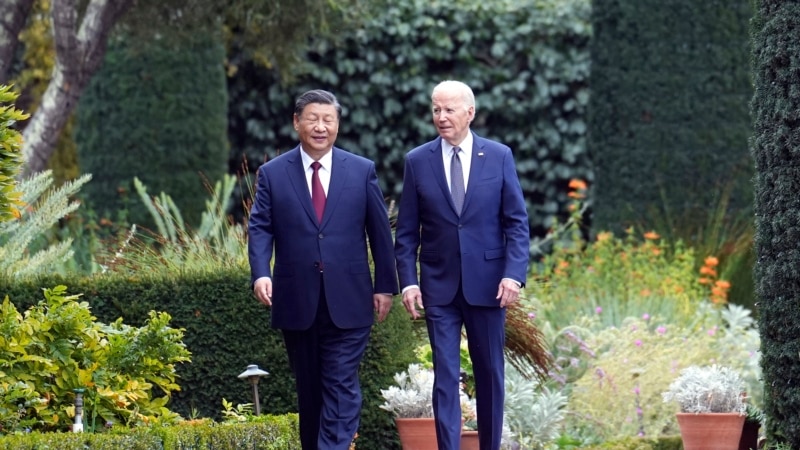The Biden administration is touting its outreach to China, pointing to cooperation on counternarcotics, discussions on artificial intelligence, and the resumption of military-to-military contacts as evidence of cooperation that has reduced tension between the two rivals.
“This intensive diplomacy was about managing tough issues rather than patching up the relationship,” White House national security adviser Jake Sullivan said at a Council on Foreign Relations event Tuesday evening.
He pointed to Taiwan holding “historic elections” earlier this month “without any major cross-strait incident” and said that was in part due to Washington, Beijing and Taipei working “to reduce miscommunication and misperception.” Beijing considers Taiwan a wayward province and has not ruled out the use of force to take full control of the island.
Sullivan’s speech was the latest in a series of briefings by senior officials in recent days that showcased the administration’s focus on maintaining the stability of U.S.–China ties.
A key component is leader-to-leader engagement, Sullivan said, noting that a call between U.S. President Joe Biden and Chinese counterpart Xi Jinping is expected to happen “fairly soon.” A senior administration official told VOA that Secretary of State Antony Blinken is also expected to visit Beijing again “at some point” this year.
The White House messaging comes amid ongoing conflicts in Ukraine and the Middle East and as Biden gears up for his reelection campaign against likely Republican nominee former U.S. President Donald Trump, where tough talk on China is likely on both sides.
Trump is already criticizing Biden’s green energy policies designed to bolster American manufacturing and the purchase of electric vehicles, saying they will allow China’s electric vehicle industry to steal American jobs.
Addressing differences
Sullivan highlighted his recent meeting with China’s minister of foreign affairs, Wang Yi, and various engagements of top Biden administration officials with their Chinese counterparts to address issues critical to U.S. interests. They include Beijing’s “support for Russia’s war against Ukraine,” human rights, and disruptions to the global supply chain.
“We did not pull back from national security focus measures like restrictions on outbound investment and updates to our export controls,” he said. “Instead, we use these meetings as opportunities to explain what these measures were, but almost as importantly, what they were not.”
The “competitive structural dynamics,” Sullivan argued, need not impede the two sides from addressing mutual interests and transnational problems. “A sustainable China policy is about holding in one’s head multiple truths at the same time and working iteratively to reconcile them,” he said.
Sullivan declined to confirm whether China agreed to use its influence on Tehran to rein in Iran-backed Houthi militants’ attacks on shipping vessels in the Red Sea. U.S. clashes with the Houthis in Yemen and other Iran proxies in Lebanon, Iraq, and Syria — fallouts from the Israel-Hamas war in Gaza — have threatened to draw Washington into a wider war in the Middle East.
Cyber operations
Concerns remain — including U.S. fears that Chinese hacking operations could hit U.S. infrastructure and disrupt the November presidential election. In a briefing to American lawmakers on Wednesday, FBI Director Christopher Wray said Chinese government hackers are actively targeting America’s electrical grid, wastewater treatment plants, gas pipelines and transportation systems.
Wray alleged that Beijing is running cyber campaigns to “silence, coerce, and threaten our citizens and residents.” The National Intelligence Council in December also said in a report that Beijing “tacitly approved efforts to try to influence a handful of midterm races involving members of both U.S. political parties.”
Meanwhile, the brewing chip war continues to be the focus of the U.S.-China tech rivalry, with Beijing accusing Washington of “hegemonic and bullying practices” as it denies China access to a limited group of advanced semiconductors while upgrading chip capabilities at home.
VOA National Security Correspondent Jeff Seldin contributed to this report.

